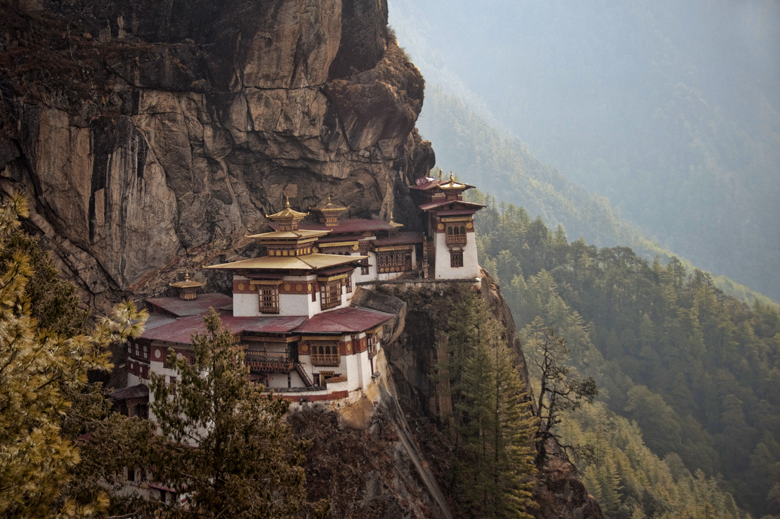
In a world spinning out of ecological
balance
Bhutan is as refreshing as an oasis in the desert.
Peter Matthiessen
Bhutan is a Switzerland-sized Himalayan mountain kingdom wedged between two giants of the region, Tibet and India. Linked historically and culturally to Tibet, yet unnerved by the Chinese invasion of that country in the 1950s, Bhutan has snuggled up to India for security in the last half century. Though there has been tension at times, and one serious skirmish, the relationship has benefited the little kingdom for the most part, providing financial aid and skilled labor. So India gets jobs, Bhutan gets construction, and everybody is mostly happy.
Known as Druk Yul, Land of the Thunder Dragon, Bhutan was a loose conglomeration of fiefdoms (feudal estates) until 1907 when a dynasty of kings was established. This is a nation that clings to the past, yet over the course of the last century there has been a cautious shift toward modernity, mostly in health care and education. The kingdom was finally opened to tourism in the nineties, on a limited basis. Only in the last decade has the king allowed the use of televisions, computers, and cell phones. Citizens must wear traditional dress in public and cannot use tobacco anywhere, anytime (tourists are allowed to for now).
Because of this isolation and reverence for the past, Bhutan has been slow to develop its natural resources. Consequently most forests are virgin and rivers free-flowing. More than half of the land surface has been set aside as forest preserves, lush oak and evergreen spangled with rhododendrons, where endangered species such as tiger, snow leopard, and wild oxen still hang out. There are, in addition, over 500 species of birds. As Bhutan gradually opens its doors to the 21st century, a stated objective of the king is to do so with minimal impact on the environment.
The young king and queen of Bhutan are adored like rock stars. Both were educated at Ivy League schools in the States but chose to return to their own country to live and reign.